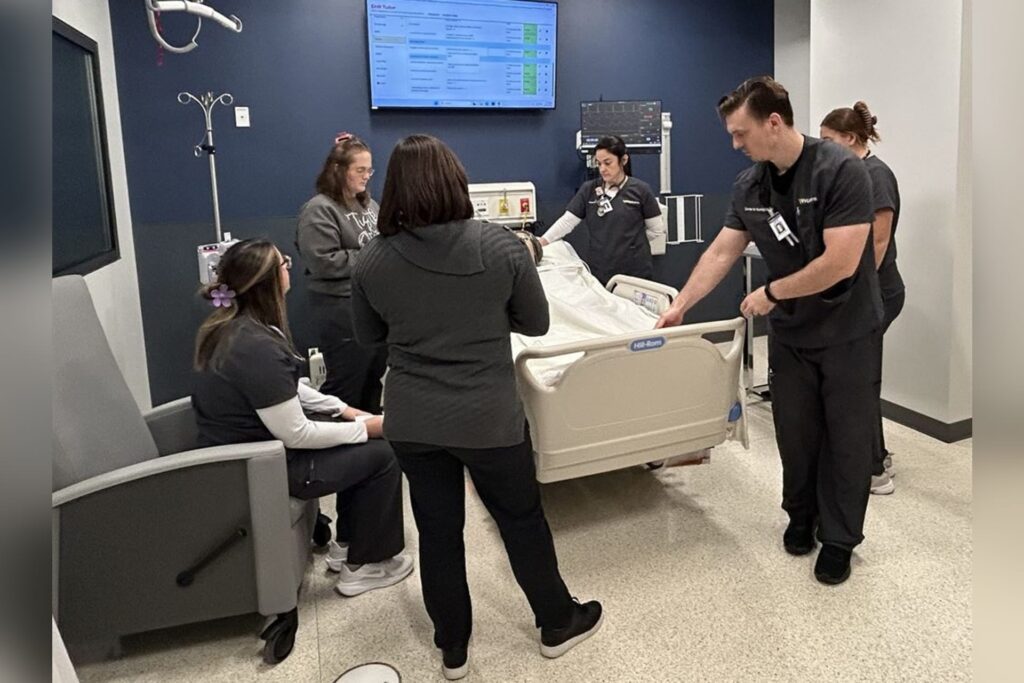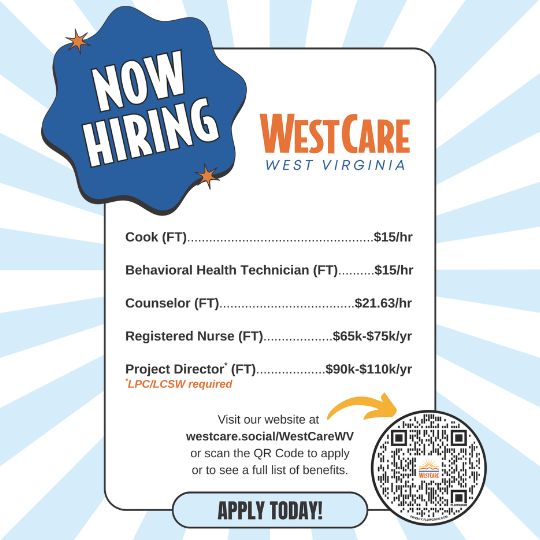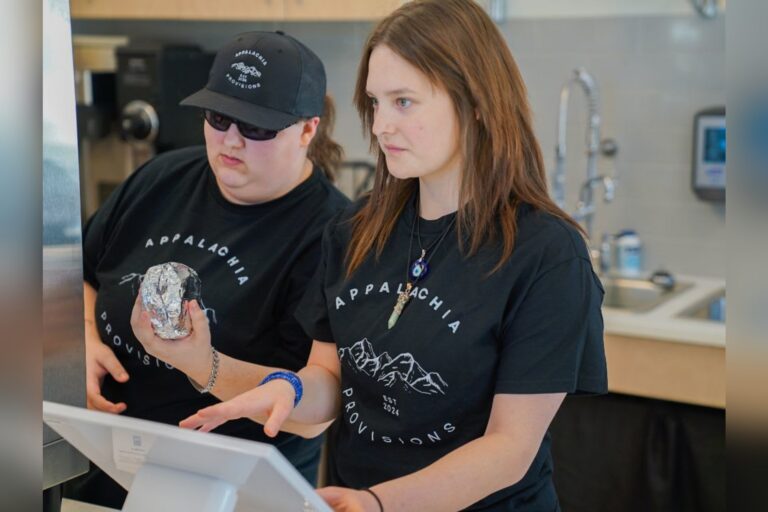MORGANTOWN, W.Va. — With their first semester of classes rapidly nearing completion, students in the first cohort of the diploma program at the WVU Medicine Center for Nursing Education (CNE) expressed deep appreciation for the hands-on experience and support that have shaped their learning so far.
The first few weeks of class focused on textbook-based learning, skill development and faculty-led clinicals. After that, students began precepted clinical rotations, or one-on-one guidance with a licensed professional, throughout WVU Medicine J.W. Ruby Memorial Hospital.
“We were able to just jump right into working with patients,” Megan Townsend, a student from Morgantown, said.
Townsend and her classmates can already perform patient assessments, administer medications, give injections and insert catheters and feeding tubes.
Patient beds and equipment in the CNE Skills Unit, Interactive Lab and Simulation Lab are set up identically to those at Ruby Memorial Hospital, giving students a level of familiarity when they are inside a real hospital setting.
Not only do students work with real patients, but they also practice real-life scenarios in their Simulation Lab exercises. Students randomly act out a specific role for each exercise, giving them a unique perspective and a chance to learn new skills, especially how to work with other staff members and communicate with a patient’s family.
At the conclusion of the simulation exercise, students join their classroom instructor for a period of discussion and review.
“In the simulation environment, faculty help students focus on things they may not have had the opportunity to see in the hospital yet,” Tanya Rogers, Ed.D., M.S.N., CNE assistant vice president of Nursing Education, said.
“It is their first semester, and they are exceeding performance expectations and even completed their first multi-patient simulation. We couldn’t be more excited for them.”
Mary-Kate Bostick of Pittsburgh said the support she gets from the entire cohort is invaluable to her learning.
“Some people have more experience than others, so I can ask those in my clinical group or people in the cohort if something has ever happened and how they would handle it,” Bostick said.
Both Bostick and Townsend agreed that even during more difficult periods like exams, the instructors and their peers help to reduce stress as much as possible.
“The instructors will share helpful videos for each chapter and easy ways to remember concepts,” Bostick said. “They offer a weekly tutoring session as well to recap everything. But they also offer things like a weekly boxing class or arts and crafts. Nursing school is hard, but they also give us the chance to take a second and just unwind.”
For Townsend, the program has helped solidify her right career choice.
“I just love that we were able to start working with patients right away,” she said. “With nursing, you’re in and out of the room all day, and you can talk to your patients and get to know them more, which I love. That’s my favorite part of my job.”
For more information on the WVU Medicine Center for Nursing Education or to apply to the program, visit WVUMedicine.org/CNE.












